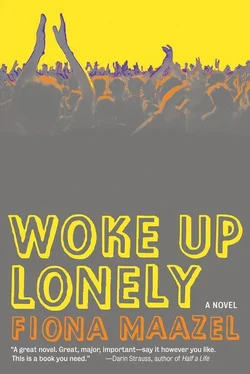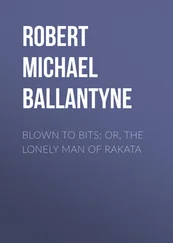Bruce kept a notebook in his bag at all times. In it were sayings of spiritual value. A documentarian walks among the living, though he himself is dead.
He used to refer to that one a lot; it helped with his day jobs. Working on set for TV shows imported from abroad and dubbed to fit. His last: chess-playing families who enacted their moves on a battlefield. His job? Cue the rooks!
After that, he seemed to catch sight, wherever he went, of a new television show on which contestants ate worms for money. Worms, millipedes, ants. In general, he tried to restrict his TV intake to offerings that did not question God’s wisdom in peopling the world with such as us, but sometimes stuff happens. The show had been on at the gym, on a screen right above the only elliptical trainer left. It was on at Best Buy, where he’d gone to peruse gadgets he could not afford. So there he was, eyeing the cameras, just him and the bug show that grossed millions. Where was the human side of this show? The intrigue? Every competition needed intrigue.
Thus: an idea. A show in which there were, okay, trials of fortitude, though these would hardly be the point. Say the show was called Trial by Liar. Say you had one person who knew what the trial was but could lie about it, and another person who had to guess. Lying or not? The show would be about people having to figure each other out. They might live together for a week to this end. It could be moving. It could be a documentary series in the guise of something just stupid enough to sell. The Helix was out there doing basically the same thing, so why not Bruce?
He spent three days drafting the proposal and first few episodes. Meetings were set. He flew to L.A. the next day. Chop, chop, Bruce. And when Rita said: What’s the rush? he went: Chop, chop, Rita. He had five minutes before the networks lost interest or stole the project.
She said, “But you’ve been down this road before. Fly out there like a slave, get feted for a day, and then six months later no one has gotten back to you, yea or nay.”
He was throwing socks in a duffel. “You need faith, Rita. This business is not for quitters.”
She rolled her eyes. “Okay, but don’t cry on my shoulder when it falls to pieces.”
He stood with boxers in hand. Said, “And the Oscar for best supporting wife goes to. .”
“I just don’t want you to be disappointed.”
He got to L.A., had his meetings, and it was exactly as Rita had said. Two months waiting by the phone and then an email from his agent: Sorry, but no.
A documentarian drinks to excess.
Bruce managed to keep the information to himself for two days before Rita broke him down. To her credit, she did not say I told you so, just held his hand and said there would be other opportunities.
A month later, watching a movie about boarding-school kids and their nasty parents, he heard tell of the carpe diem spirit, which he took to mean: for the sake of Trial by Liar, you should collateral your house and take out a loan. He’d already promised Rita that, no matter what, he would not gamble to finance his projects. She thought he had a gambling problem, which he didn’t, though if he did, she got the idea from that one time at Atlantic City. On their honeymoon. She’d gone from slot to slot, betting nickels and dimes. He had nibbled her ear. They had pulled the handles together. He had just started prep on a film about people who fake their own deaths to escape the law. She’d thought it was a great idea. He’d needed to raise about $30 K. He had 2. They’d talked and laughed and she’d leaned over his shoulder at blackjack and it was romantic and it was fun. Fun until it wasn’t. By night’s end, he was out nine thousand dollars, and she was online, ordering books that promised to attenuate addiction. It was impossible to pair these words— attenuate, addiction —but the books said otherwise. They said his problem, though he did not have a problem, was surmountable. But what did they know? His problem, if you could call it that, was that he just wasn’t very lucky. He never gambled without a project that needed funding in mind. That he always had a project was beside the point.
Was a loan gambling? Only if you weren’t 100 percent sure you’d pay it back on time. So, no: not gambling. Trial by Liar was going to make it. He went to the bank, and the rest was easy: a deal with a cable station that broadcast only to the East Coast but was seen in a million homes. As for Rita, she was on a need-to-know basis; that was what a good marriage was about. He’d make the money back and use the profits to buy her peridot earrings.
The show attracted notice. It was raw and depressing. Some of the people were crazy. Others were violent. There were fights and tears. And for Bruce: vindication. He was not making money, not yet, but he was pleased. There was room in the canon of documentary filmmaking for work such as this. Unhappy people engaged in the venture of character assessment, which is a venture of love.
In the meantime, though, he was running out of capital. The major networks had not called. Pepsi had not called. The interest rate on his loan was awesome, and his wife wanted a baby.
Many nights over dinner he’d say the finances were prohibitive, to which she’d say: Oh come on, and woo him to bed. Which was, in the end, just fine. Those times together ranked as some of the best of their marriage, Rita being of the idea that the more explosive his orgasm, the smarter his sperm would be. She tried hard. She tried everything.
Bruce, for his part, enjoyed what he could and sabotaged the rest. He’d been working with a laptop poised hotly on his groin. He’d started wearing briefs a size too small. And with each passing month, he began to think his efforts were paying off. That, or there was something amiss on her end. Never mind. Their sex was great, she was not getting pregnant, he was safe.
But not for long, because Rita decided to do what most women her age do: make appointments, get tests.
The show got canceled. Bruce was paid to give a few talks about underground programming and used the fees to bankroll an online gambling bender that cost him one of two savings bonds, the other of which he used to shred his debt, which, it turned out, was impossible. There would be no money for a college fund or life insurance. There’d be no money for a crib. But still he said nothing. He spent his days in the park and came home to his wife stabbing herself in the gut with hormones. She braved the drugs and procedures and shots, and so there was just no telling her what he had done.
The day she got pregnant was etched in his mind as the most confusing of his life. The panic was incredible. The joy unbridled. The effort it took to hide the panic almost life threatening. The ease with which he took her in his arms and squeezed: wonderful. They were having a baby! He threw up in the bathroom. He had sworn never to tell her about the gambling and the loan, and then he told her everything. This meant the day she got pregnant became the most confusing of her life, too. Could she still trust her husband? Did she still love her husband? She was so angry, she threw up in the bathroom. He would have to get a job. Any job in any field. She’d take on extra work until maternity leave. They’d fire the cleaning lady and cut out the luxuries. It all seemed reasonable, and he swore to do exactly as told. But a job in any field? Was he supposed to janitor just because he was creative and creativity did not pay? Was he being punished for wanting more than the next guy? No, he was being punished for ruining their life. He promised to look for work the next day.
He cruised the job sites online. He uploaded his résumé and met the relevant parties and tried to be agreeable, though it never occurred to him actually to work in these places. A job in HR at a pharmaceutical company? A super for Curtis Building Management? Come on, he was a show runner! In most cases, he was not offered work, anyway, which was fine. He could say he tried and spend another day watching the vampire slayer on TV.
Читать дальше












